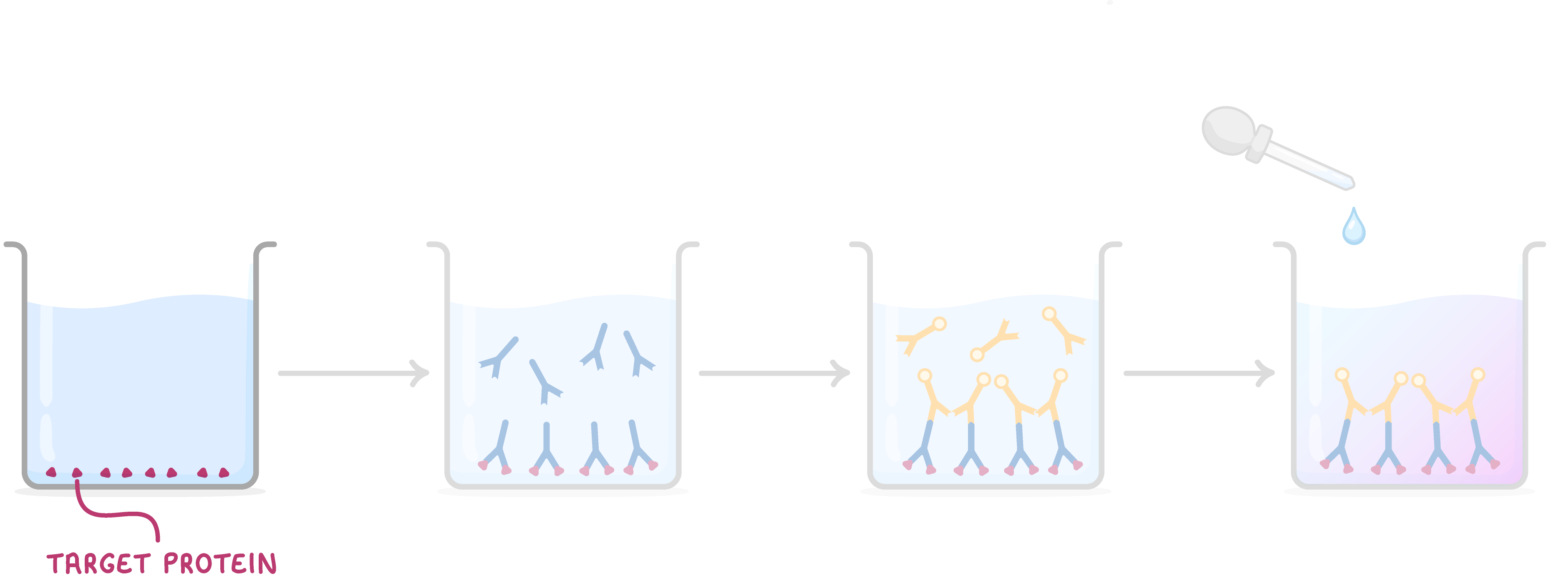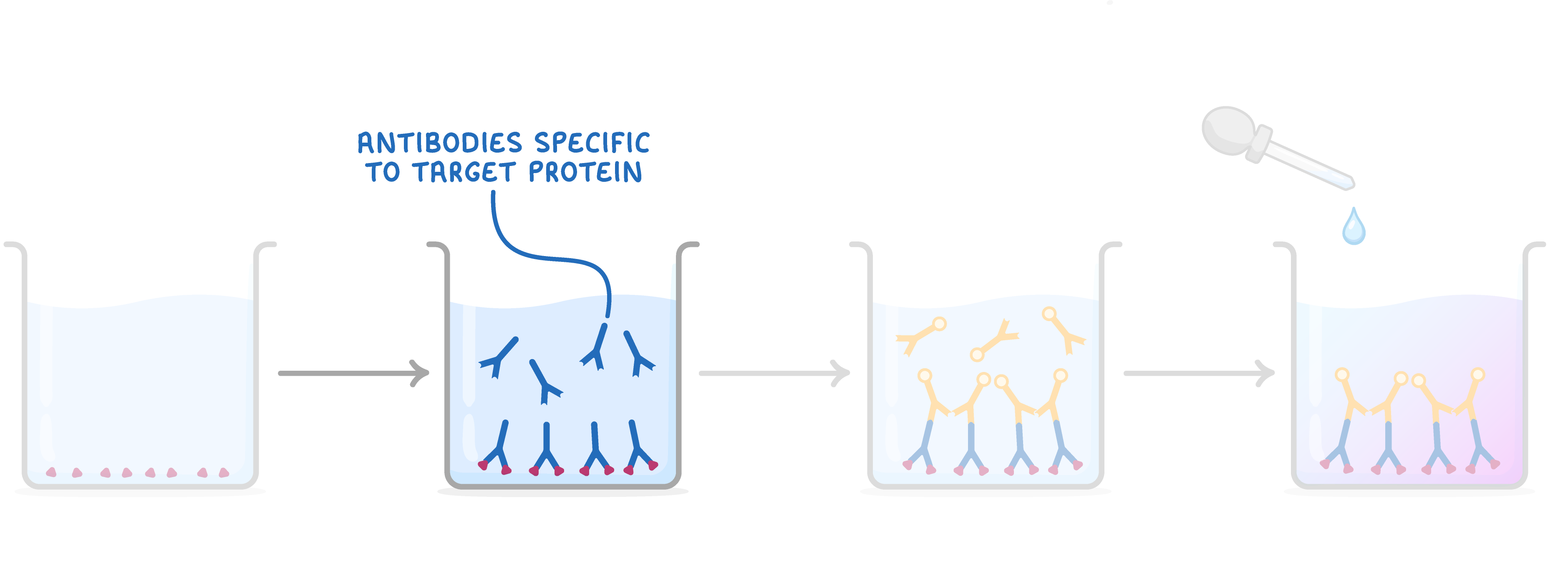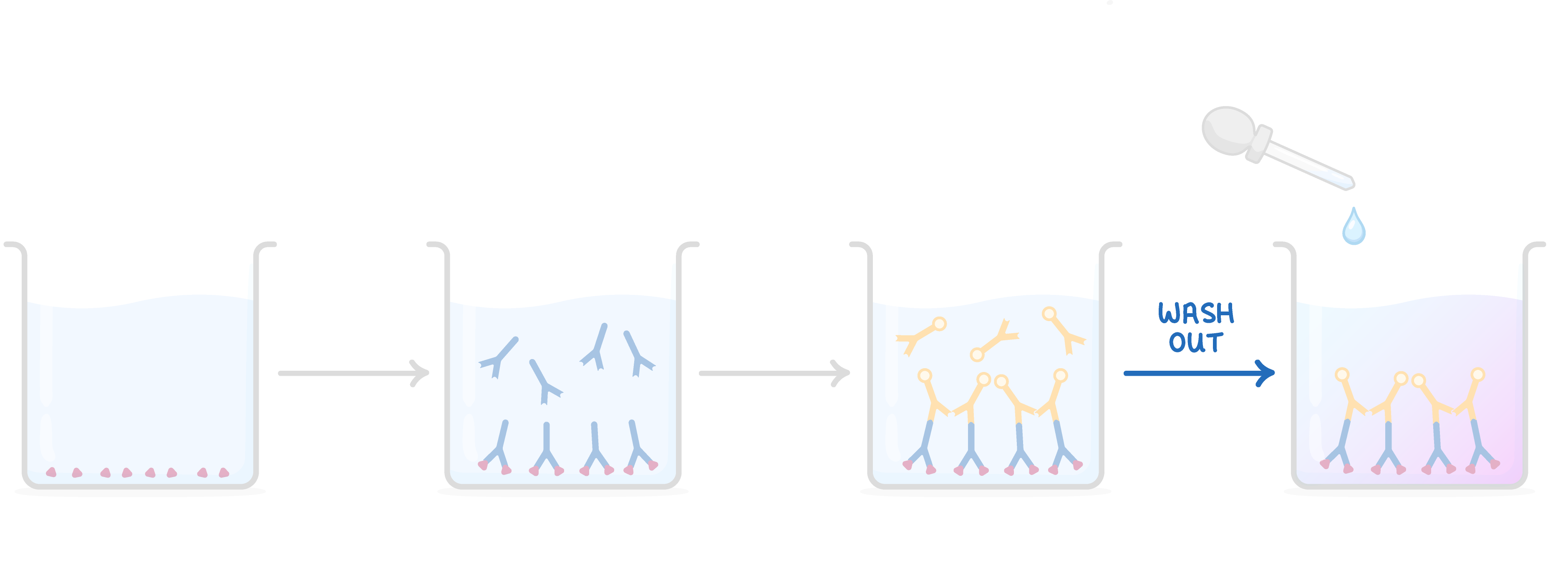Monoclonal Antibodies
This lesson covers:
- What monoclonal antibodies are
- The uses of monoclonal antibodies in medicine
- The use of antibodies in the ELISA test
Monoclonal antibodies Monoclonal antibodies are antibodies produced from a single clone of plasma cells:
Each of these antibodies are identical to one another and so will bind to a specific molecule. Monoclonal antibodies have many uses:
|
ELISA test The Enzyme-Linked ImmunoSorbant Assay (ELISA) test uses monoclonal antibodies to to detect both the presence and quantity of protein in a sample. It is often used to find out whether a patient has antigens for a pathogen, and hence has the disease. There are two types of ELISA test:
The following steps outline how the indirect ELISA test is carried out: |
 Add the sample (containing the target protein) to a well plate where the target protein can attach to the well. |




